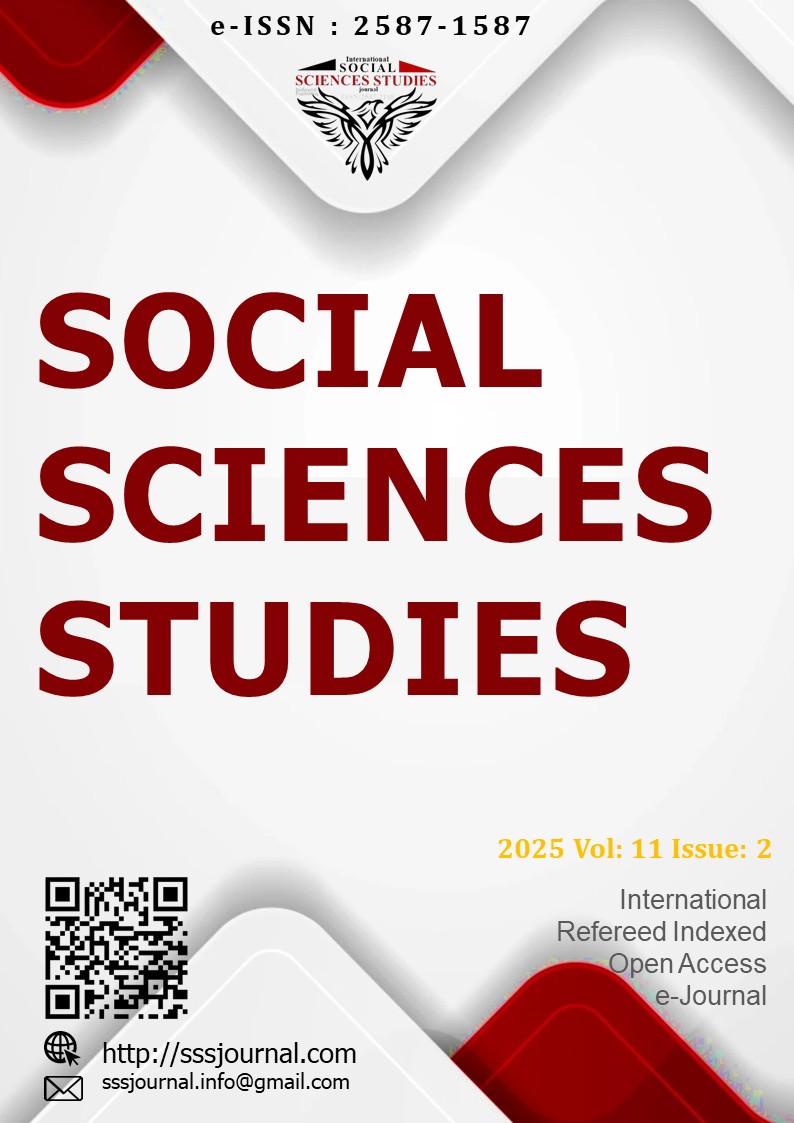Author :
Abstract
Sosyo-kültürel olarak bir nevi falcılığa karşı tabu oluşsa da insanoğlu bu geleneği devam ettirmiştir. Bunun başlıca nedenini de sorgulayacak olursak bir nevi merak duygusudur. Merak duygusunun içinde yetişen bilinmezlik, geleceği anlamlandıramama duyguları insanları umut taciri arayışına sürüklemiştir. Bu umut taciri arayışı bir nevi “umut, fakirin ekmeğidir.” anlayışını da destekleyerek günümüze kadar ulaşan X, Y, Z kuşağı üzerindeki falcılık geleneğinin Eskişehir’deki gelişimi ele alınmıştır.
Eskişehir’in x, y, z kuşağı üzerindeki falcılık geleneğini inceleyen makale; falcılığın kültürel, sosyolojik ve psikolojik boyutları ele alınmış, nitel araştırma yöntemleri (gözlem, mülakat, anket) kullanılarak kuşaklar arasındaki falcılık geleneğinin gelişimi ve kuşaklar arasında falcılık geleneğine inanış araştırılarak veriler toplanmıştır. Falcılığın kültürel bir miras olarak modern dünyada da evrensel bir bağ kurma, umut arayışı işlevini sürdürdüğünü ortaya koymuştur. Ancak, kuşaklar arasındaki bu farklılıklar geleneğinin yorumlanmasında çeşitlilik yaratmıştır.
Araştırmada falın insanlık tarihi boyunca bilinmeyene duyulan merak ve umut arayışıyla şekillenmiş bir kültürel olgu olduğuna dikkat çekilmiştir. X kuşağı için falcılık, ev ortamında gerçekleşen bir gelenek ve dayanışma unsurudur. Kahve falı ve yıldızname gibi geleneksel yöntemlerin öne çıktığı bu kuşak, falı ailevi bağları güçlendiren bir ritüel olarak değerlendirilmiştir. Y kuşağı ise sosyal alanlarda fal baktırmayı tercih etmekte, tarot ve astroloji gibi modern yöntemlere yönelmekte ve falı hem bireysel hem de sosyal bir etkinlik olarak görülmektedir. Z kuşağı, dijital dünyanın etkisiyle falcılığa daha eleştirel yaklaşsa da dijital platformlar ve mobil uygulamalar üzerinden fal baktırmayı tercih etmektedir. Tarot ve astroloji bu kuşak için daha popülerdir, çünkü bilimsel bir altyapıya sahip oldukları düşünülmektedir.
Falcılığın kuşaklar arasında farklılaşan bir kültürel deneyim olduğunu göstermiştir. Geçmişte bir gelenek olarak değerlendirilen bu olgu, günümüzde eğlence, rehberlik ve sosyal bağlar kurma gibi işlevlerle varlığını sürdürmektedir. Makale, falcılığın toplumsal değişimlere ve teknolojik yeniliklere adapte olduğunu, böylece kuşaklar arasında farklı işlevler üstlenerek evrensel bir fenomen haline geldiğini ortaya koymaktadır.
Keywords
Abstract
Although there is a kind of taboo against fortune telling socio-culturally, humanity has continued this tradition. If we were to question the main reason for this, it is a kind of curiosity. The feelings of uncertainty and inability to make sense of the future that grow up in the sense of curiosity have led people to seek hope merchants. This search for hope merchants supports the understanding that “hope is the bread of the poor” and the development of the fortune telling tradition on the X, Y, Z generations in Eskişehir, which has survived to the present day, has been discussed. The article examining the fortune telling tradition on the X, Y, Z generations of Eskişehir; The cultural, sociological and psychological dimensions of fortune telling have been discussed, and data have been collected by using qualitative research methods (observation, interview, survey) to investigate the development of the fortune telling tradition between generations and the belief in the fortune telling tradition between generations. It has been revealed that fortune telling, as a cultural heritage, continues to function as a universal bond and a search for hope in the modern world. However, these differences between generations have created diversity in the interpretation of its tradition.
The study has drawn attention to the fact that fortune telling has been a cultural phenomenon shaped by curiosity and hope for the unknown throughout human history. For Generation X, fortune telling is a tradition and an element of solidarity that takes place in the home environment. This generation, where traditional methods such as coffee fortune telling and horoscope are prominent, has considered fortune telling as a ritual that strengthens family ties. Generation Y, on the other hand, prefers to have fortune telling in social areas, turns to modern methods such as tarot and astrology, and sees fortune telling as both an individual and social activity. Although Generation Z approaches fortune telling more critically under the influence of the digital world, they prefer to have fortune telling through digital platforms and mobile applications. Tarot and astrology are more popular for this generation because they are thought to have a scientific background.
It has been shown that fortune telling is a cultural experience that differs between generations. This phenomenon, which was considered a tradition in the past, continues to exist today with functions such as entertainment, guidance and establishing social connections. The article demonstrates that fortune telling has adapted to social changes and technological innovations, thus becoming a universal phenomenon, assuming different functions across generations.





